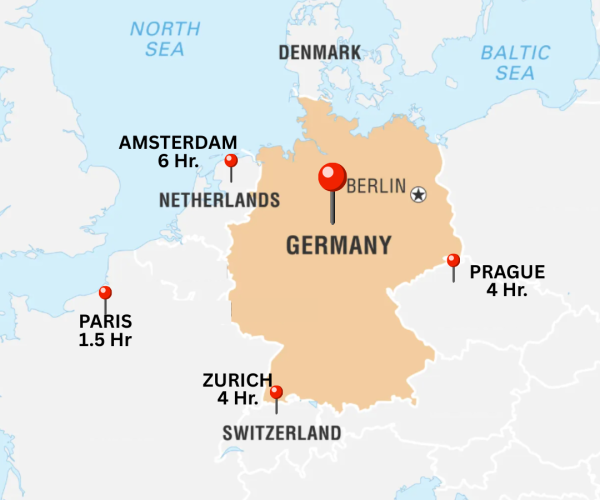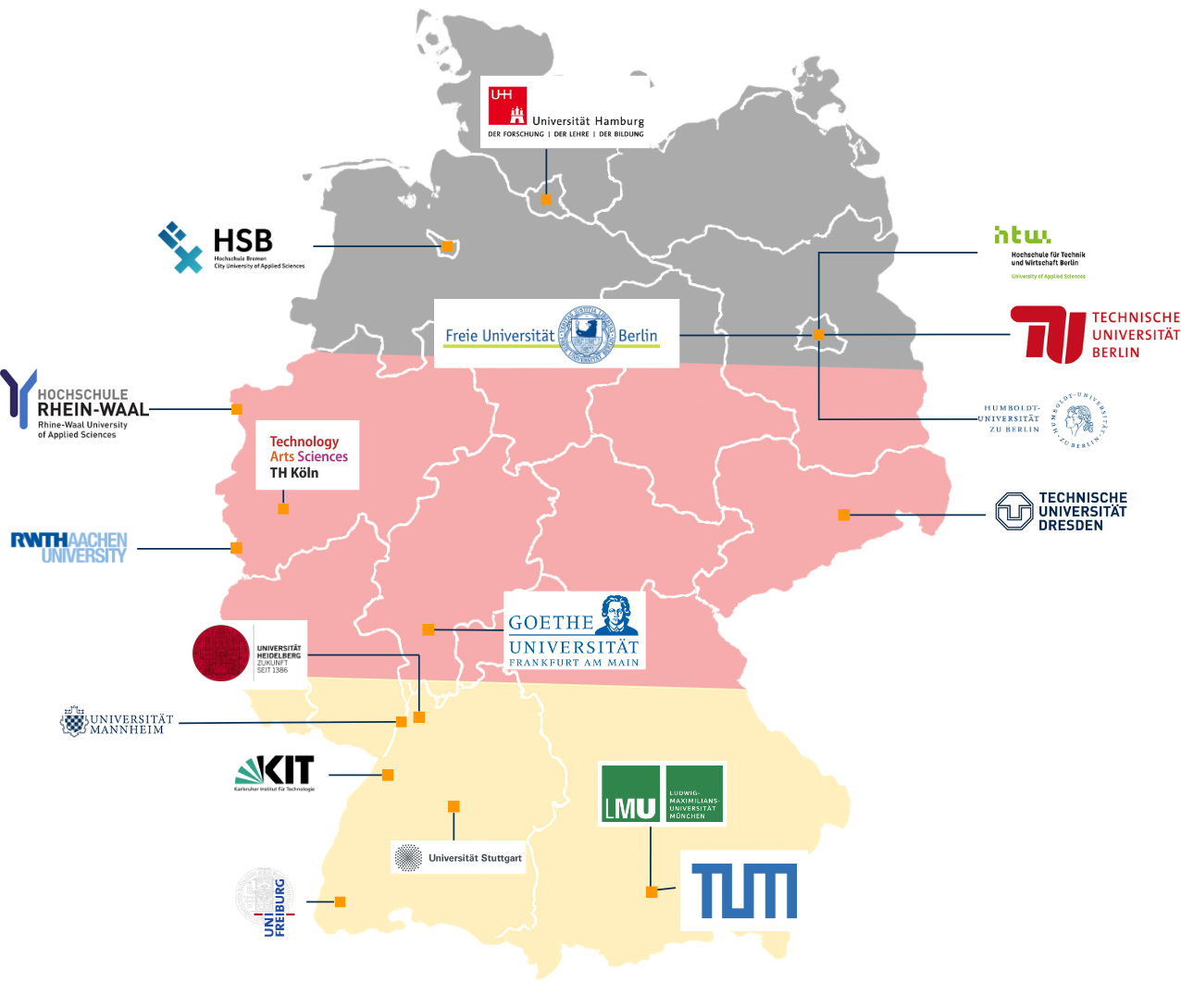Why Germany?
Germany is one of the world’s most sought-after destinations for higher education, offering top-ranked universities, globally recognized degrees, affordable tuition, and unmatched career opportunities. As a leading hub for German higher education, the country combines academic excellence, cultural diversity, and strong industry connections – making it the ideal place to study in Germany and build your future. From engineering to business, German institutions offer cutting-edge programs tailored to global demands, attracting students from around the world. For Indian students, studying in Germany means access to world-class universities, innovative research, and hands-on learning experiences. Whether you’re aiming for innovation, research, or entrepreneurship, Higher education in Germany opens doors to limitless possibilities.


Robust Economy

Free Education

Manufacturing Hub

Thriving Job Market

Student Jobs

Job Seeker Visa

Post-study Benefits

Quality of Life
Rare & Fascinating Facts.
Things You’ll Only Find in Germany

Bread Paradise

Castle Country

Autobahn Thrill

Green Pioneer

Nobel Legacy

Passport Power

Study in Germany, Explore All of Europe.
Centrally located, Germany makes travel across Europe easy and affordable:
Paris – 1.5 hrs (Flight)
Amsterdam – 6 hrs (Train)
Zurich - 4hrs (Train)
Prague – 4 hrs (Train)
Rome – 2 hrs (Flight)
German Education System.
Germany’s education system is known for its structure, quality, and accessibility. The German education system offers multiple pathways such as academic and vocational, designed to support students from early childhood through university. With tuition-free public universities and a strong emphasis on practical learning, Germany provides one of the most inclusive and future-ready education models in the world. The German education system for international students ensures high-quality programs, global recognition, and excellent career prospects. Aiming to study in Germany’s public universities gives students access to world-class education, hands-on experience, and a clear pathway to a successful future in Europe’s leading academic hub.
Types of Schools in Germany.
Germany’s school system is designed to cater to different learning styles and career goals from an early age:
Primary School Education (Grundschule)
Secondary School Pathways and Options
University Education and Higher Learning Opportunities
After School: Preparing for University (Bachelors).
Before entering a Bachelor’s program, students must meet specific academic and language requirements. Pursuing a bachelor’s in Germany offers an exceptional opportunity to earn a globally recognized degree from some of the world’s top-ranked public universities. Aspiring to study a bachelor’s in Germany not only ensures high-quality education but also provides practical exposure, a multicultural learning environment, and access to Europe’s thriving job market-making it a smart investment in your academic and professional future.
- The Abitur is Germany’s university entrance qualification. International students must have an equivalent high school diploma recognized by German universities.
- If your school-leaving certificate isn’t equivalent to the Abitur, you may need to attend a Studienkolleg. This is a one-year foundation course preparing you for university studies in Germany.
- Optional but useful for international students to demonstrate academic readiness. Some universities may require it.
- Students qualifying for JEE Advanced and admitted to IITs are considered academically eligible for direct entry. This may exempt them from Studienkolleg.
- Students who have completed one year of Bachelor’s study at a recognized Indian university may qualify for direct admission. This is useful when Class 12 alone doesn’t meet the equivalency requirement.
After Bachelors: Preparing for University (Masters).
Germany offers a wide range of Master’s programs that are globally respected and often tuition-free at public universities. Pursuing a master’s in Germany allows international students to experience world-class education, cutting-edge research, and strong industry connections – all within a vibrant, multicultural environment. To study in Germany, students must meet specific academic and language requirements to ensure admission into top-ranked public universities.
Recognized Bachelor’s Degree: Applicants must hold a Bachelor’s degree from a recognized university. The qualification should be equivalent to a German undergraduate degree to be eligible for admission into German public universities.
Types of Higher Education Institution.
Universitäten (Universities)
Fachhochschulen (Universities of Applied Sciences)
Kunst-, Musik- und Filmhochschulen (Academies of Art, Music, and Film)
Degree Overview.
Germany’s degree structure ensures compatibility across Europe:
- Duration: 3-4 years
- Focus: Foundational knowledge in a chosen field
- Outcome: Entry-level jobs or eligibility for Master’s programs
- Duration: 1.5-2 years
- Focus: Advanced specialization or research
- Outcome: Career advancement or preparation for PhD
- Duration: 3-5 years
- Focus: Independent research under supervision
- Outcome: Academic, research, or high-level industry roles
Fields of Education.
It’s a Myth that Germany only has engineering courses available at no cost.
Some of the fields listed below:

Engineering

Maths and Science

Agriculture

Healthcare

Law & Business

Social Sciences
Some of the Courses in Demand:
❖ M.Sc. in Artificial Intelligence
❖ M.Sc. in Artificial Intelligence & Machine Learning
❖ M.Sc. in Global Management & Digital Competencies
❖ M.Sc. in Management, Finance, Data Science, Blockchain & Digital Assets
❖ M.Sc. in Management, Finance, Entrepreneurship, and Data Analytics
❖ M.Sc. Integrative Technologies & Architectural Design Research
❖ M.A. Textile Design
Top Universities in Germany.


